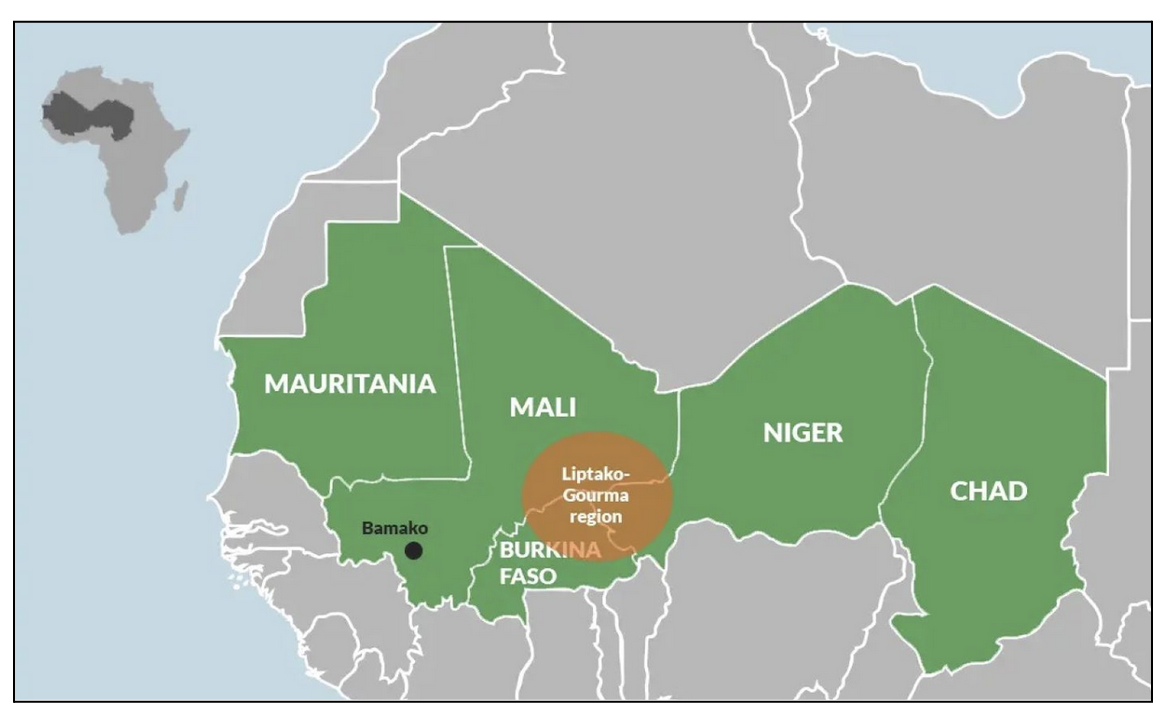News Excerpt:
Burkina Faso, Mali, and Niger finalize their regional alliance project.
More about the news:
- Three military-led West African countries Burkina Faso, Mali, and Niger have finalized plans to form a confederation after turning their backs on former colonial ruler France to seek closer ties with Russia.
- Their Foreign Ministers met in Niger's capital Niamey to agree on a text to establish the alliance named L’Alliance des États du Sahel (AES).
- The three countries in late January decided to quit the Economic Community of West African States (ECOWAS), to create their own regional grouping.
About AES:
- It was established by signing the Liptako-Gourma Charter, named after the place where all three countries’ borders intersect.

- It was established on September 16, 2023, as a collaborative defense pact among the three countries focused on fostering economic development and political autonomy.
- It pledges its members to support one another militarily should any of them come under attack and also obligates the three nations to cooperate to end or prevent armed uprisings.
Background of the formation of Alliance:
- Series of Political Instability:
-
- All three countries faced a series of political upheavals with all of them experiencing coups.
- A primary catalyst for the series of coups is the government's failure to quell rebel insurgencies effectively. Inadequate equipment and training render military personnel vulnerable to insurgent attacks, leading to significant casualties.
- Persistent issues such as poverty, inequality, and corruption contribute to societal unrest, fueling discontentment in the nation.
- Impact on Franco-African Relations:
-
- France's role in the region has been met with accusations of neo-colonialism, with critics asserting that France exploits African nations' natural resources without providing commensurate benefits.
- The culmination of strained relations led to France withdrawing its troops from Burkina Faso and Mali. By December 2023, French military operations in West Africa ceased entirely, with the final troop withdrawal from Niger, leading to a diminished French influence.
- Conclusion of International Peacekeeping Efforts:
- The cessation of MINUSMA operations and the withdrawal of French troops underscore the precarious state of regional stability in West Africa. The absence of international intervention mechanisms may exacerbate existing security challenges, posing long-term ramifications for the affected countries and the broader region.
|
|
ECOWAS:
|
Way forward: The three landlocked countries are among the poorest nations in the world. Despite the announcements, without finance and technical capacity, it won’t be easy for them to build new institutions.
- Political Consolidation:
-
- The Confederation of the Alliance of Sahel States (AES) should focus on consolidating political stability within its member countries.
- Establishing strong and transparent governance structures will be crucial to address past instances of political instability and prevent future coups.
- Economic Development:
-
- The AES should prioritize economic development initiatives to uplift the living standards of its citizens.
- Investment in key sectors such as infrastructure, education, healthcare, and agriculture can stimulate growth and create employment opportunities, addressing socio-economic challenges.
- Diplomatic Engagement:
-
- Engaging in diplomatic dialogue with neighboring countries and international stakeholders, including France, ECOWAS, and the United Nations, is essential to foster regional cooperation and stability.
- Constructive engagement can help alleviate tensions and build partnerships for mutual benefit.
- Security Cooperation:
-
- Strengthening security cooperation among member states is vital to counter insurgencies and maintain regional peace and stability.
- The AES should enhance intelligence-sharing mechanisms, bolster military capabilities, and collaborate with international partners to combat terrorism and organized crime.
- Humanitarian Assistance:
- Addressing humanitarian needs, including food insecurity, displacement, and access to basic services, should remain a priority for the AES.
- Providing humanitarian assistance to vulnerable populations will demonstrate the alliance's commitment to the well-being of its people and foster goodwill both domestically and internationally.


